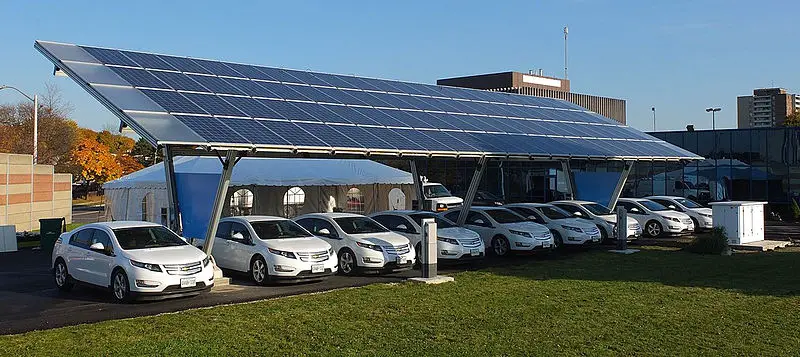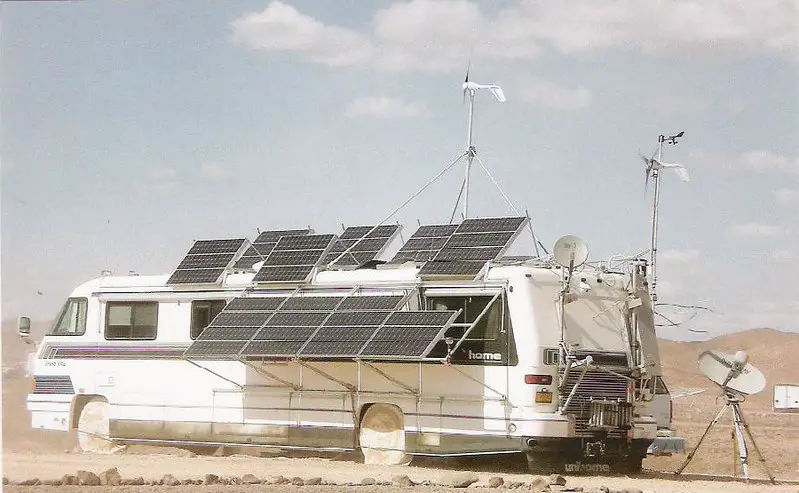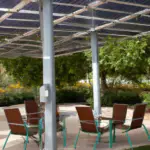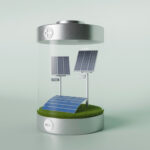As any RV enthusiast would agree, life on the open road is a thrill. However, having to constantly monitor the battery charge level of an RV and stop frequently to recharge it in order to use its onboard appliances can also be expensive or at the very least time-consuming. But it should go without saying that RV solar panel kits are excellent for road trips given the wide range of motorhome items that are available for harnessing solar energy.
A solar power system is not only very economical but also environmentally good. Solar kits can be pricey, but once installed and operating, they require little upkeep and no more funding while continuously producing electricity for nothing. This allows you to travel freely without being restricted by the need to recharge your batteries in a typical manner.
Finding the best RV solar panels, though, can be challenging. Because of this, we’ve outlined what to look for when purchasing them and revealed our top selections for the best solar panels for RV battery charging available.
Cost of RV Solar Panels
What you require from your solar system will determine how much you spend on RV solar panels. You’ll need to buy more equipment if you use a lot of electricity, which will increase the overall cost of your RV solar system.
RV solar panel kits range in price from $100 to more than $1,000. Your specific energy needs will determine this. An RV solar panel starter package costs between $200 and $500 if you’re just getting started.
When you first start using solar, a kit in this price range—which often includes a charge controller, solar cables, and one or two solar panels—is a terrific place to start.
Best Solar Panels for RV Battery Charging
1. Renogy 400 Watt 12 Volt Solar Premium Kit
Our choice for the best RV solar kit overall is Renogy’s 400 Watt solar kit. It has four 100-watt monocrystalline solar panels with a 25-year warranty on production and a 21 percent efficiency rating.
A 40 Amp MPPT solar charge controller, four mounting Z-Brackets, and Renogy’s Bluetooth module are all included in the kit, allowing you to monitor and control the system using a smartphone.
Pros
- Highly efficient
- Competitive Pricing
- Comes with Easy to Use Instructions
- Solar panels, Solar Chargers, Brackets, & Cabling Come with the Kit
Cons
- Solar Batteries are not Included
- A little Bigger Size
2. WindyNation 100 Watt Solar Panel Off-Grid Kit
For boondockers who don’t consume a lot of power, WindyNation sells a 100-watt, 12 Volt solar panel system. One panel with 100-watt power output, a 20 amp PWM charge controller, four mounting Z-brackets, cable, and solar connections are all included in the kit. A 100 Amp-hour absorbed glass matt (AGM) lead-acid battery is also included.
This panel will generate 350 watt-hours (Wh) of power each day, according to WindyNation. Although four 100-watt panels can be accommodated by the charge controller that is supplied, it isn’t much and allows you to expand the system in the future. This kit is our best overall runner-up RV solar kit due to the positive internet ratings and included equipment.
Pros
- Includes an Acid Lead Battery
- Cabling & Racking System Included
- Highly Appreciated by People
Cons
- Comes With a Single Solar Panel
- Solar Inverter not Included
3. Go Power! 130 Watt Portable Solar Kit
RVers who don’t want to install a roof-mounted solar system would benefit greatly from the 130-watt portable solar kit from Go Power! The carrying case and folding 130-watt panel’s adjustable legs make it simple to transport and set up. A 10 Amp PWM charge controller, cable, and battery clamps are also included in the kit. There is a 25-year warranty on the panel.
Because it is portable, foldable, and comes with a storage box, Go Power! is our choice for the finest RV solar kit. Additionally, it can be used as backup power or in conjunction with an existing rooftop system. What else is there to ask for in a portable solar panel?
Pros
- Portable and Easy to Setup
- Panels are Foldable
- Build-in Charger
Cons
- Require Setup every time
- No Solar Inverter Included
- Not Compatible with Lithium Battery
- A Bit Pricey
4. HQST 100 Watt Polycrystalline Solar Panel Kit
A great RV solar beginning kit is the HQST 100 Watt polycrystalline solar panel kit. It comes with a PWM charge controller, a single 100-watt panel, connector cables, and mounting Z-brackets. The kit is available with either a 10A or 20A charge controller, with the 20A charger costing somewhat more.
Pros
- Best Value for Money
- Comes with Built-in Charger Controller
- Can be Expanded in Future
Cons
- A Bit Less Efficient
- Solar Inverter not Included
5. ACOPOWER 800W Monocrystalline Panel Solar RV Kits
The ACOPOWER Monocrystalline Panel Solar RV Kits offer up to 800 watts of energy if you’ve determined that you’ll require more power than the ordinary RVer. The 800-watt package, which includes eight premium 100-watt panels and a 60amp MPPT solar controller for optimal efficiency, is plenty for RVers to go entirely off-grid and power just about anything.
The panels are compatible with lead acid, AGM, gel, and lithium batteries and can be connected in parallel (12 volts) or in series (24 volts). The kit does not come with an inverter or battery; instead, it just includes mounting hardware, enclosure, and wires for self-installation.
Pros
- Compact Design
- Highly Efficient
- Extremely Easy Setup
Cons
- A Bit Pricey
How long to Charge an RV Battery with a Solar Panel

It should come as no surprise that solar panels and other solar equipment are more efficient and portable than ever because solar technology is always developing and getting more advanced.
In fact, the solar industry has experienced a lot of innovation over the past ten years because it is currently the energy sector with the fastest growth in the world.
The total charging time is affected by the weather, the battery’s condition, and its design. A panel can normally charge a completely discharged battery in five to eight hours.
The speed of a panel’s charging can be affected by the sun’s position in the sky. Summertime solar panels charge more quickly when sunshine is shining directly on them. On cloudy days, charging cycles are slower.
How to Choose Solar Panels for RV Battery Charging
When searching for solar panels for your RVs, there are a few important considerations to bear in mind:
Your Power Requirements
Determine how much power you use while camping in order to determine which solar panels will work best for your RV. You may calculate the number of solar panels and any additional batteries you would require based on that.
The average RV camper uses 20 kWh of electricity each day. You will require more solar panels as a result of your increased electricity consumption as more appliances are added to your RV Solar home.
Type of Setup You Need
The majority of boondockers find a manual setup to be rather simple. Your solar panels need only be set up, connected to your battery, and pointed toward the sun. Then, to boost solar output, just turn the panels toward the sun every couple of hours. However, keep in mind that you must set it up and take it down every time you visit a site.
If you don’t want to set up portable solar panels, another choice is roof-mounted RV solar panels. However, because the roof needs to be exposed to sunshine, you won’t be able to park your RV in the shadow. Although roof-mounted systems could cost a little more, full-time boondockers may find that they are more convenient.
Type of Solar Panels You Need
Solar panels come in three primary varieties: monocrystalline, polycrystalline, and amorphous. The most effective and costly materials are monocrystalline. Monocrystalline panels are unquestionably the ones for you if your space is restricted. Although slightly more expensive than monocrystalline panels, polycrystalline panels are marginally less effective.
Flexible thin-film solar panels are known as amorphous solar panels. They are the least expensive alternative, but they are also the least effective. In order to create anything like what monocrystalline or polycrystalline panels produce, you would need more of them.
Solar Batteries You Need
If you use solar panels on your RV, you’ll probably want to acquire some extra solar batteries to store the energy. You can acquire lead acid batteries or lithium-ion batteries for your RV, but each has its own set of advantages and disadvantages.
Lead acid batteries are the most prevalent type of battery used in RVs. They’re popular because they’re inexpensive and long-lasting. However, they normally need to be changed after 5 years and depending on the type of lead acid battery you purchase, regular maintenance may be required.
Lithium-ion batteries are significantly more expensive than lead-acid batteries. They do, however, last far longer, store more energy, and are more efficient. Lithium-ion batteries are worth the extra money for folks who boondock full-time.
Conclusion
As you can see, there is a lot to think about before purchasing solar panels for RV battery charging. With limited space and power output, determining exactly what you require from an RV solar system can be tricky.
If you frequently boondock, it’s worthwhile to connect your generator with a set of solar panels. The RV solar panel kits we’ve mentioned are certain to be an excellent starting point for making the switch to solar energy.

















